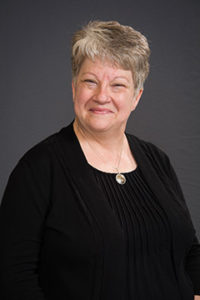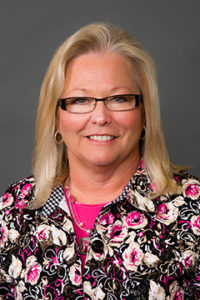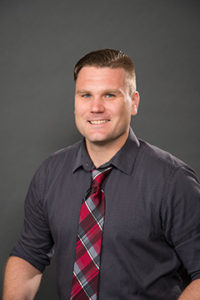Q&A: IU East School of Education faculty provides tips and information as parents prepare their children for K-12 this fall
With regional K-12 districts returning to school this month and into early September with in-class, online or hybrid options for instruction, parents and guardians are faced with several questions on how to prepare their children for the year ahead.
Faculty for Indiana University East’s School of Education (SoE) pooled their expertise to provide tips and advice on preparing for the school year amid the coronavirus (COVID-19) for teachers, parents and guardians.
Faculty have insight on how area teachers are preparing for the start of school as they remain in contact with their former students to offer support, especially during their first three years teaching professionally throughout Indiana and Ohio. Their connection with alumni provides an exchange of the current atmosphere in area schools as schools plan to offer in-class, online or hybrid options for instruction, and the concerns raised by teachers and parents are part of the conversation.
SoE also hosted a Facebook Live discussion on “K-12 School Reopening Discussion and Q&A” with regional school administrators to talk about the return to school on July 21.
Since March 2020, SoE faculty have been readily available to assist K-12 teachers as they moved their classes to an online format, many for the first time. SoE faculty also provided resources for parents and guardians, including a vetted list of educational resources to help parents who are working from home with their kids, available on IU East’s Facebook page.
Faculty experts to discuss the reopening of school include:
Jamie Buffington-Adams, associate professor of special education and associate dean for the SoE, teaches in the areas of special education methods, content area literacy methods and foundation of education. Her research interests are in curriculum studies, critical disability studies and multi-literacies.
Denice Honaker, assistant professor of education and coordinator of early childhood education, has scholarly interests are in family literacy, teacher preparation and classroom management, and critical literacies. Honaker recently presented a workshop with IU webinar for K-12 teachers on July 24. Her virtual presentation, “Why quitting/not finishing work cannot be an option – parents as coaches for developing grit,” focused on support for teachers as they support parents and families.
Jane Lamb, director of field experience and licensing advisor, oversees the elementary student teaching senior capstone class and internships for elementary education. She has taught at the elementary level and has been a district literacy coordinator.
Josh Tolbert, assistant professor of special education, teaches special education methods, classroom assessment, learning disabilities and mild disabilities. He has research interests in visual strategies in instruction for students with learning disabilities, acquisition of foreign language vocabulary by students with learning disabilities, and exploring multicultural perspectives of pre-service teachers.
Jerry Wilde, dean of SoE and professor of educational psychology, teaches in the areas of educational psychology and adolescent development. His research includes cognitive behavior therapy with children and adolescents and frustration tolerance.
Q&A on Preparing K-12 students for fall 2020
At this point, should parents (or guardians) have any concerns about their child(ren) being behind academically as they look to start a new school year?
Lamb: That is a valid concern for parents this year as it can be after every summer vacation. Teachers are familiar with the concept of the “summer slide” where students can regress over the break. However, teachers are also aware that education involves the child’s social and emotional as well as their academic development. Right now many educators are focused on ensuring students are ready to learn and that often means attending to their social and emotional states before digging into academic work. In addition, teachers are well-prepared to evaluate where students are academically and to devise instruction which helps them move forward. We know parents will worry, but ensuring your child feels secure in your plan for the year is probably more important than worrying about being behind at first.
Honaker: Parents/guardians may have realistic concerns about the impact on their child’s academic progress caused by the quick shut down in the spring and fast transition to online formats at the end of last school year. Stress alone can certainly impact our ability to learn and retain information. BUT – one of the first jobs of a teacher is to meet the students where they are…wherever that is… and support the students in getting to the next step. It’s going to be beneficial for all of us to remember that none of us can learn – we are not in a place to learn – until we have some kind of sense of safety, a sense of belonging, and a sense that we are capable of learning.
Honaker notes the state of Indiana has academic standards as well as social, emotional and behavioral competencies. Visit the Department of Education’s website at https://www.doe.in.gov/sebw for more information.
Is preparing for school this year different from any other start of the school year?
Tolbert: Preparation for teachers and students this year is radically different. Children will need social and emotional support, particularly as there is already research indicating that the COVID pandemic has impacted children’s well-being in those areas. As much of a challenge as COVID has posed, it is important to remember that there is also an opportunity in the midst of this pandemic to teach students about the importance of patience, flexibility and how interdependent students are as a learning community.
Honaker: So, preparation is the same and different. Children still have the same basic needs – food, clothing, and plenty of sleep. Their emotional needs are especially important, now, though. Supporting children’s social and emotional needs will be critical more than ever. Open communication regarding how everyone is feeling, designated times to relax and release stress, making plans for when we feel overwhelmed (which may look like anger, sadness, etc.).
Should students be reading more or ramping up other skills in math, writing, etc.? Or should families keep a focus on time off, play, and activities? Is there room for both academics and free time?
Buffington-Adams: Ultimately, every family needs to decide what works for them, but as a general rule, more time working on foundational academic skills is a good idea. In some households this may be very structured with everyone engaging in learning games or periods of study or reading throughout the day or week. In other homes, this happens in more organic ways as children participate in household activities that call on those skills. It is also worth noting that research indicates play is incredibly important to children’s development. Just because a child is having fun doesn’t mean they aren’t learning or gaining important skills like problem solving or developing creativity.
Honaker: Balance is so important – learning doesn’t happen without first feeling safe, a sense of belonging and a sense of competence. Play is NOT the opposite of learning or work – young children especially learn through play. Our minds are more ready to assimilate new information if we have a balance and take care of our physical needs, too. We need to soak up sunshine when we can. Time outdoors and playing isn’t an extra, it’s the foundation for learning. One of my favorite quotes about play is ‘the opposite of play is not work, the opposite of play is depression.’ Playing and learning do not have to be thought of as opposites.
What can they do to help prepare them for a different social environment (physical distancing/mask wearing, etc.)?
Wilde: Children should practice wearing their masks and washing their hands for at least 20 seconds at home. Doing this helps prepare children to meet expectations in their school buildings and begins to normalize these practices which will be important. We recognize that not all parents support mask wearing, but researchers are suggesting that sharing those reservations with children will make their return to school more difficult as they work through the conflict they see between home and school practices and attitudes.
Honaker: Giving them safe spaces to express their feelings – sharing books about emotions to help them have the words to say what they are feeling – and sharing their own feelings are all ways of supporting children emotionally/socially. Explaining things multiple times – children want to know the “why.” Some of it is really going to depend on how teachers and administrators are rephrasing things and explaining the why so it’s not just rules to be broken, but that these are ways to help our community to be safe. This is a beautiful lesson in being a community member that you have something to contribute, and that your actions affect other people. Developmentally many 5 year-olds are just starting to get that. We have to be ready to accept them where they are developmentally. Will they understand all the time why they have to have a mask on? No. … We have to find ways of giving them the information that is developmentally appropriate for them. It’s going to be really important to build the parent-teacher relationship. Parents and teachers need to ask a lot of questions of each other. And then there comes a point that they need to trust. Just being informed gives m e a sense of safety with my kids.
What about emotionally? Regardless of which option families choose for this fall – in class, online or a hybrid mix – how can we help prepare children for the first weeks back at school?
Buffington-Adams: The most important thing is to communicate with children. Let them know it is okay to have questions. It’s also important for children to understand that this is not a permanent situation. This is temporary and if we can all practice some new habits, we can return to normal quicker. There is an important underlying lesson in all this that children can certainly benefit from: sometimes we have to do things that we do not want to do to get better outcomes in the future. In short, students can learn valuable lessons about delaying gratification and dealing with uncertainty, particularly if we share with children why adults are making the decisions they are making. Just as important as adults clearly communicating with children, however is ensuring that children have a space to talk through their questions, concerns, and ideas and articulate their understanding of this pandemic. When parents can gather information about what their children understand, it allows adults to respond to children at their level of understanding and to help children cope with their unique worries or frustrations.





